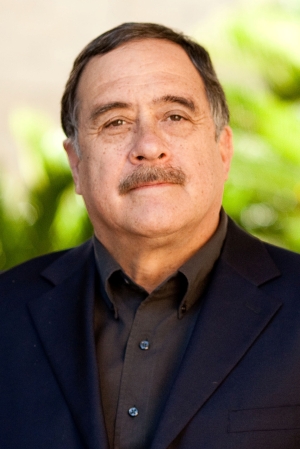Valdez Appointed to National Commission on High Incarceration Rates
May 15, 2012 / by Eric Lindberg- Research
Avelardo Valdez, a professor with the USC School of Social Work, has been appointed to a federal committee tasked with exploring high rates of incarceration in the United States.
Officials with the National Academy of Sciences, which formed the Committee on the Causes and Consequences of High Rates of Incarceration, said Valdez will offer an invaluable perspective due to his lengthy research career on topics closely related to imprisonment.
“He has the social work expertise, and he has worked on drug use issues, gang issues, and issues of urban communities and incarceration,” said Steve Redburn, who is serving as the committee’s study director. “He seemed to be one of those people who could bring a unique perspective to this and had particular strength in his academic expertise and empirical work.”
During the next 18 months, Valdez and others on the panel will examine existing scientific evidence on the dramatic increase in U.S. incarceration rates since the 1970s, determine the costs and benefits of current sentencing policies, and explore alternatives that could maintain public safety levels at a lower social and financial cost.
Valdez, whose research has centered on the consequences of substance abuse and violence with a particular focus on Hispanic populations in the Southwest and along the U.S.-Mexico border, said he was honored to be selected for the committee and is looking forward to delving into the complex issue.
“It’s fairly common knowledge that rates of incarceration in the United States are some of the highest in the world, with racial and ethnic minorities especially impacted by this phenomenon,” he said.
The panel will be responsible for drafting a final report and proposing a research agenda on incarceration policies and alternatives for the future.
Rather than comment on potential findings of the committee, Valdez said he prefers to let the scientific evidence speak for itself. He did note that one of his ongoing projects, a longitudinal study funded by the National Institutes of Health that has followed a group of Mexican-American gang members from adolescence into early adulthood, has offered insight into the consequences of crime.
“We’ve seen how early incarceration has negatively impacted their life opportunities and how difficult it is for them to reintegrate back into society,” he said.
Although he has served on several National Institutes of Health committees in the past, Valdez said this is among the most prestigious appointments he has received.
The panel, which is already beginning to collect data on incarceration rates, consists of a diverse collection of scholars and experts, including a criminologist, psychologist, prison mental health specialist, sociologist and a federal judge.
The two-year, $1.5 million project is sponsored by the National Institute of Justice and the John D. and Catherine T. MacArthur Foundation.
To reference the work of our faculty online, we ask that you directly quote their work where possible and attribute it to "FACULTY NAME, a professor in the USC Suzanne Dworak-Peck School of Social Work” (LINK: https://dworakpeck.usc.edu)
